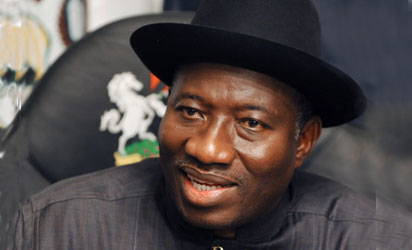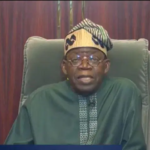As speculations emerge ahead of the 2027 elections, many individuals have begun to ask questions about whether former President Goodluck Jonathan is qualified to contest for the presidential election again.
Jonathan, who served as Nigeria’s president from 2010 to 2015, is being touted by some as a unifying figure capable of challenging President Bola Tinubu.
Reports emerging suggested that the Peoples Democratic Party (PDP) is courting Jonathan to contest under the party in a bid to unseat Tinubu in 2027.
The reports have been generating reactions with many questioning whether Jonathan is qualified to contest.
Opinions have been divided with some arguing he is legally qualified, while others cite constitutional amendments that may bar him from running again.
The debate over Jonathan’s eligibility for the 2027 presidency centers on Nigeria’s 1999 Constitution, particularly Section 137(3), introduced via the Fourth Alteration Act of 2018.
This amendment states that a person sworn in to complete another’s term as president cannot be elected for more than one additional term. Jonathan assumed the presidency in 2010 following the death of President Umaru Musa Yar’Adua and won a full term in 2011.
Speaking on the development, the Minister of Aviation and Aerospace Development, Festus Keyamo, warned that the PDP faces serious risks in its 2027 presidential calculations if it banks on Jonathan or ex-Anambra governor, Peter Obi, as its candidates.
Keyamo, in a lengthy post on his X handle said the opposition party was in a “non-enviable position” because of the mistakes it made ahead of the 2023 elections when it refused to zone its presidential ticket to the South.
“One of its attractive targets as a Presidential candidate is ex-President Goodluck Jonathan, because of his purported eligibility to run for only one term. But, if he is fielded, the Party runs the RISK of NOT HAVING A CANDIDATE AT ALL by virtue of section 137 (3) of the 1999 Constitution (Fourth Amendment),” he said.
However, in a swift reaction, Azibaola Robert, a lawyer and former pro-democracy activist, has maintained that his cousin, Jonathan is constitutionally and legally qualified to contest for the presidency.
Robert emphasized that existing court rulings have settled the matter, stating that Jonathan’s eligibility was not in doubt and that he did not need unsolicited advice.
The statement reads in part: “Dear Festus Keyamo (SAN), Chidi Odinkalu (Prof.), I greet both of you. For the record, three of us are lawyers. We were all pro-democracy activists in the ’90s, and I was a better activist than both of you combined.
“Rule No. 1: Do not offer legal advice where none is solicited. GEJ (PDP) has numerous, more cerebral, more experienced SANs at his disposal who give him sound, unblemished professional legal advice.
“Please note: GEJ is 100% constitutionally and legally qualified to contest, if he chooses to. If he decides not to yield to the overwhelming calls to run, it will not be because he is unqualified.
“Your unsolicited legal view is not of any concern to him and will never be. Don’t waste your precious time dwelling on this.
“Or should I schedule a meeting so you can be properly educated on the subsisting court judgments on the matter — one of which your party, APC, was a party to?”
Pan-Atlantic Kompass also gathered that a judgment delivered by Justice Isah Dashem of the Federal High Court, Yenagoa, on May 27, 2022, has put to rest the contentious constitutional amendment of Section 137(1)(b) and 3, as it affects Jonathan.
In the 2022 suit with number: FHC/YNG/CS/86/2022, the two APC members sued Jonathan, APC, and the Independent National Electoral Commission (INEC), over a rumour that the APC had planned to field the former president as its presidential candidate in the 2023 general elections.
Ruling on the matter, Dashem, after taking arguments from the plaintiffs’ lawyer and Jonathan, who was represented by Eric Omare, held that Jonathan was eminently qualified to contest in 2023.
Before concluding, Dashem observed that Jonathan was elected first as president in 2011.
He ruled: “The office into which the ‘election’ stated in Section 137(1)(b) of the Constitution applies to the Office of the President of the Federal Republic of Nigeria and not to the Office of the Vice President. I have perused the entirety of the Plaintiffs’ supporting affidavit and Written Address, and I am unable to find where the Plaintiffs referred to this Court as contested apart from the elections conducted in the year 2011.
“I, therefore, find the Plaintiffs’ contention that the 1st Defendant has been elected to the Office of President on Two (2) previous occasions spurious, baseless, and unsubstantiated.
“And I so hold.”





